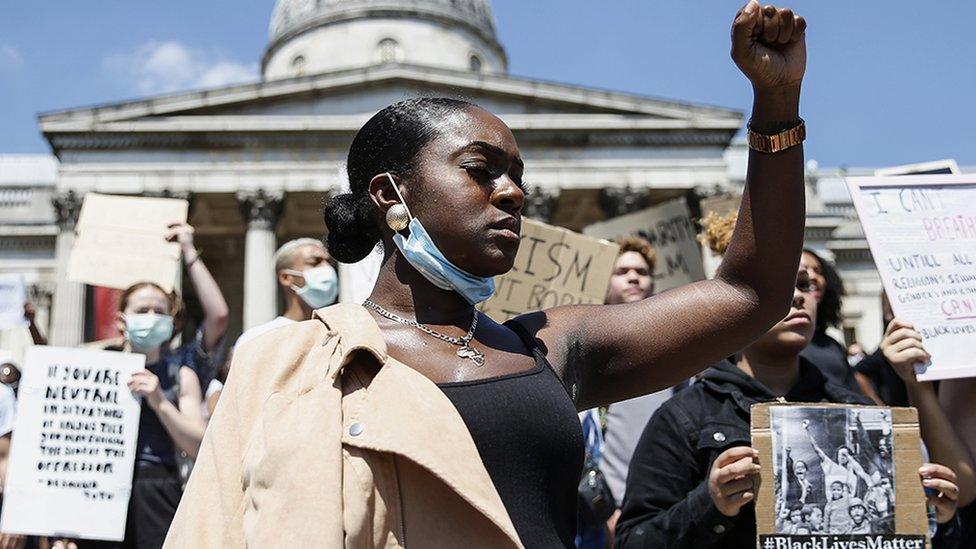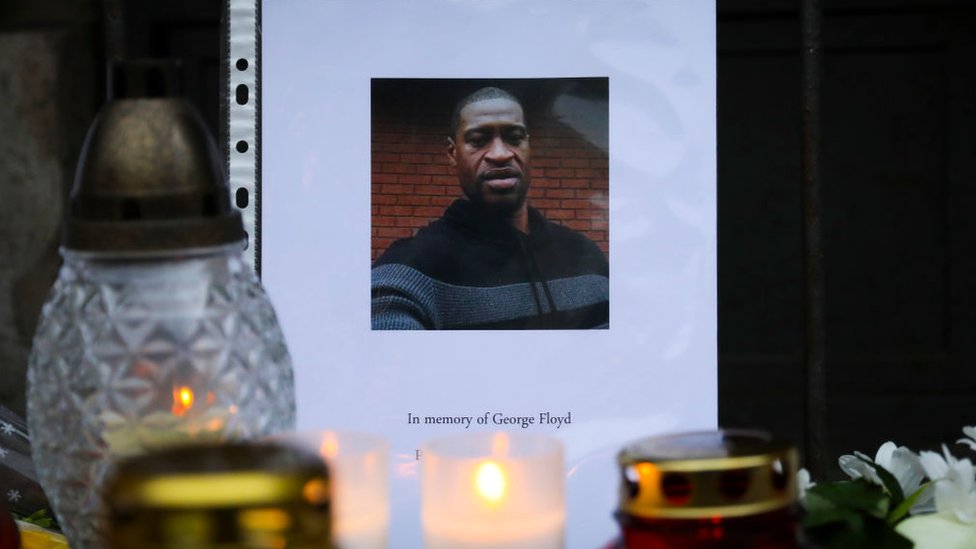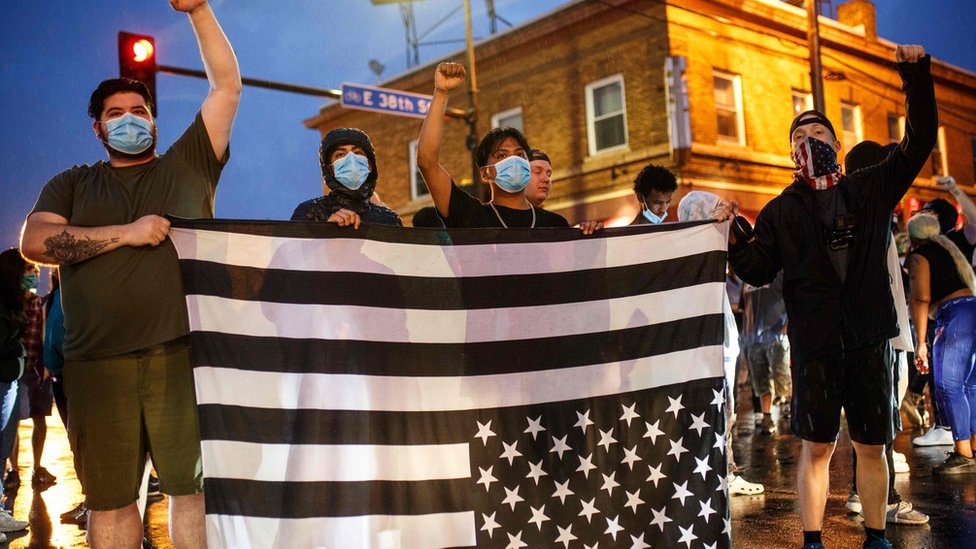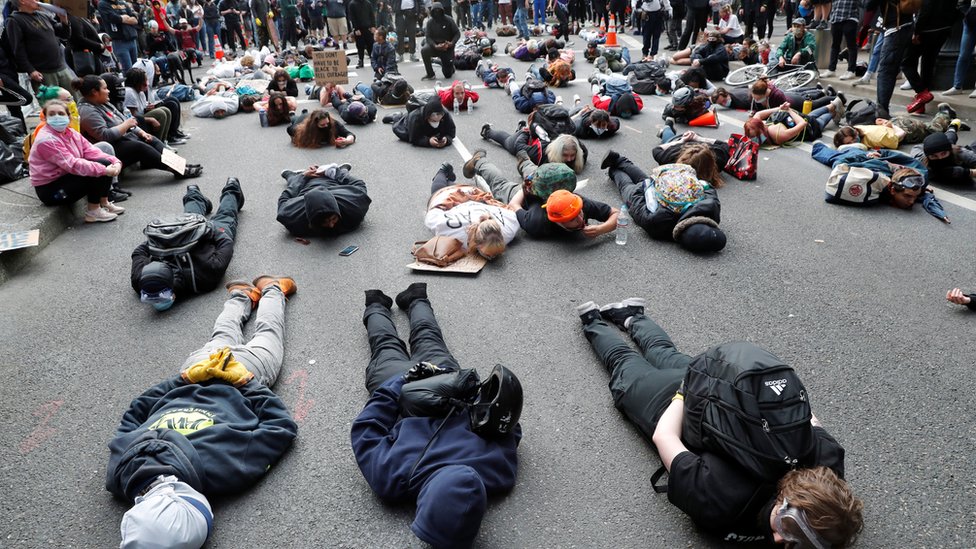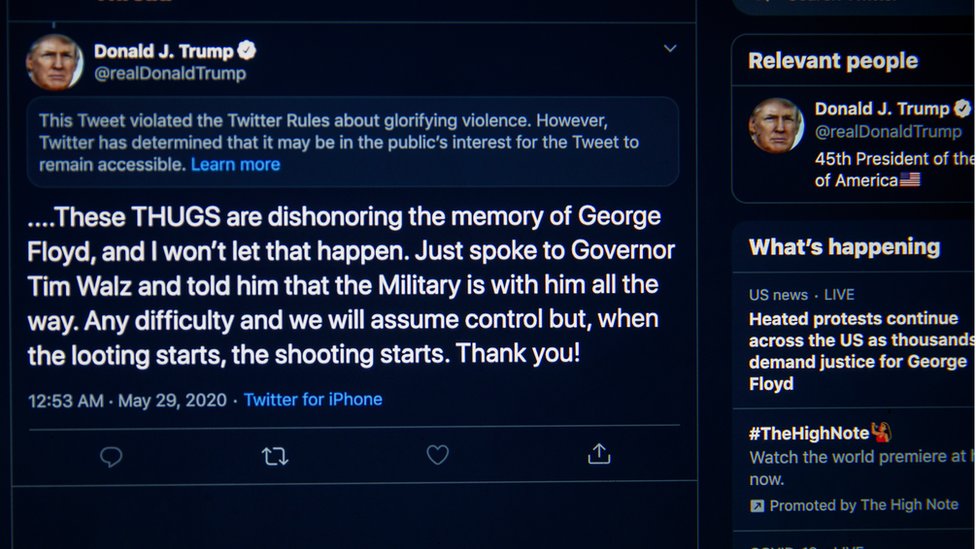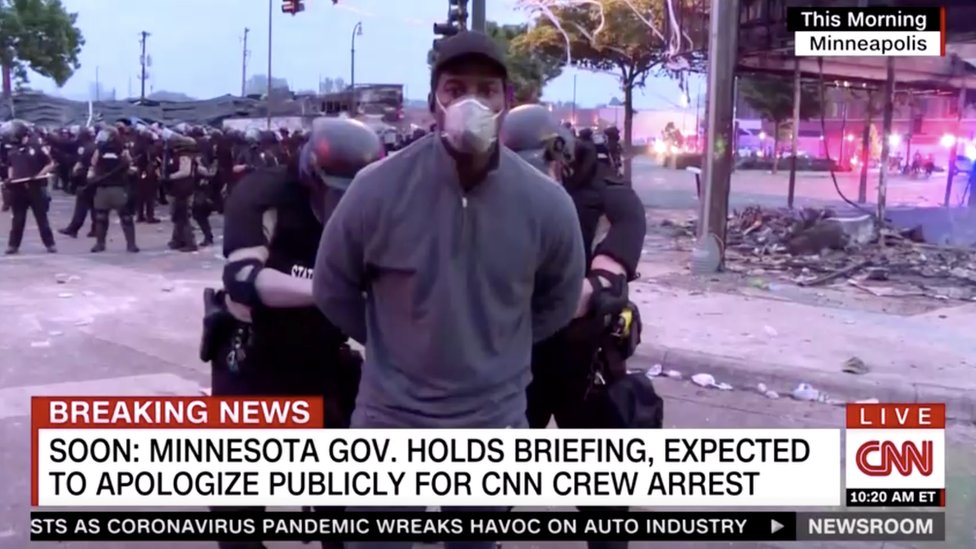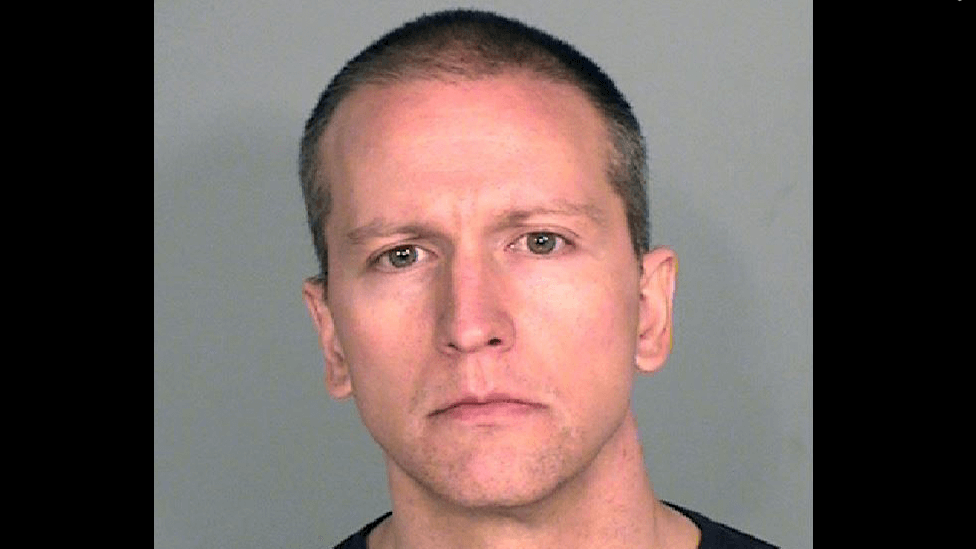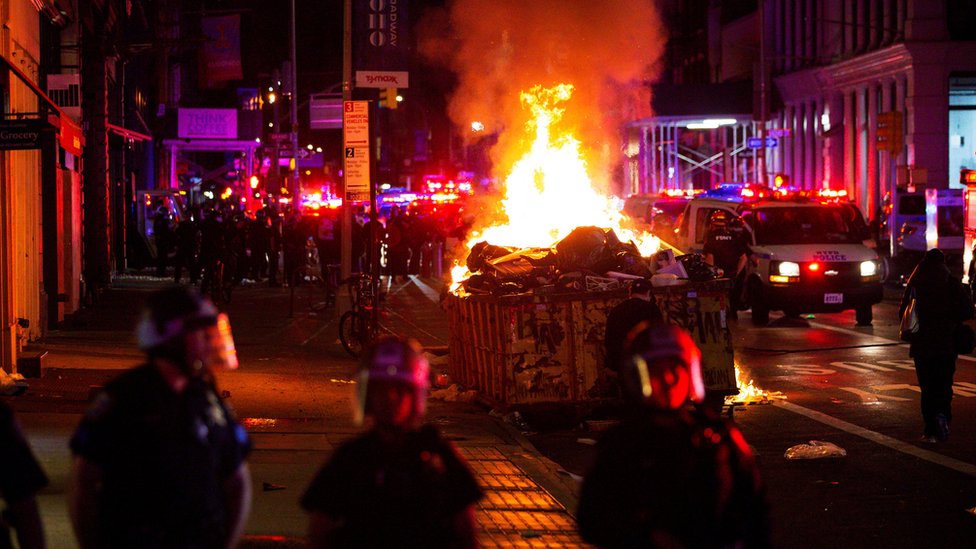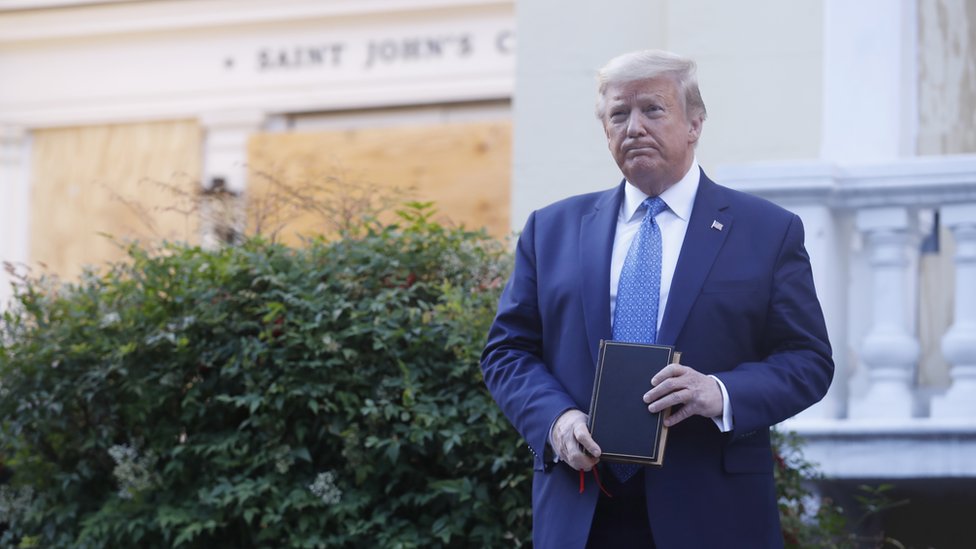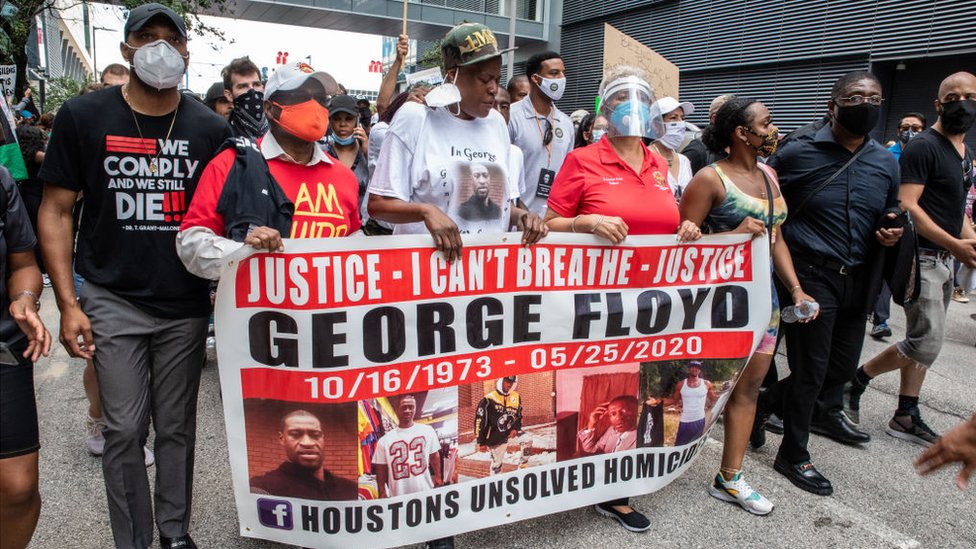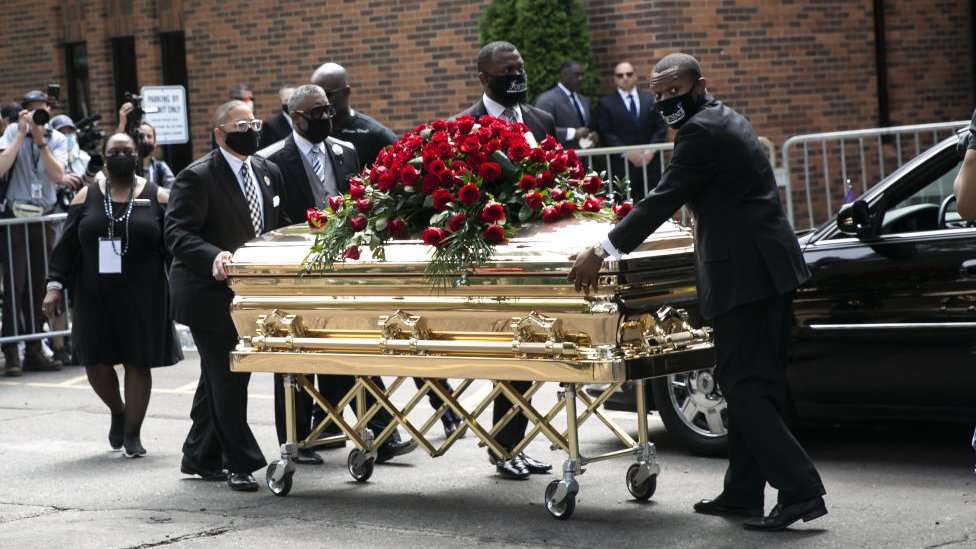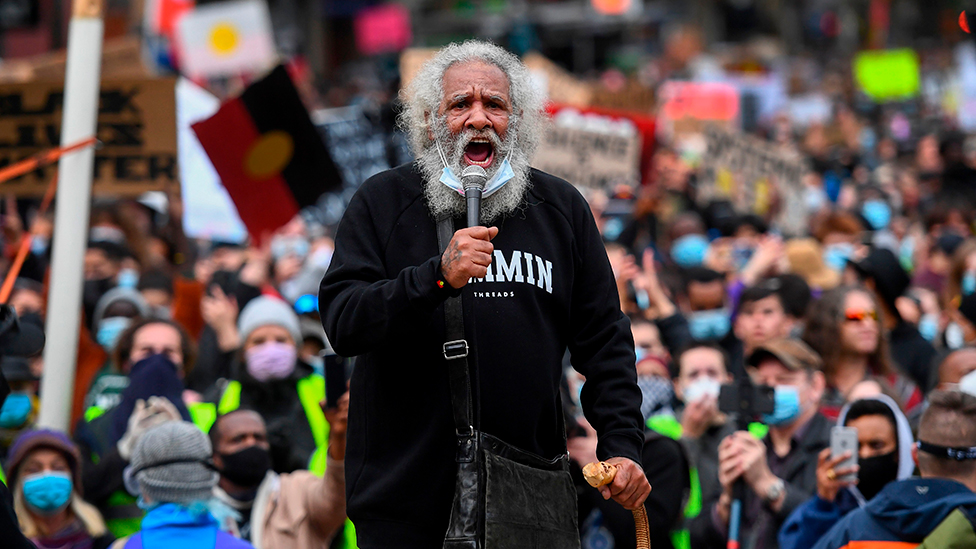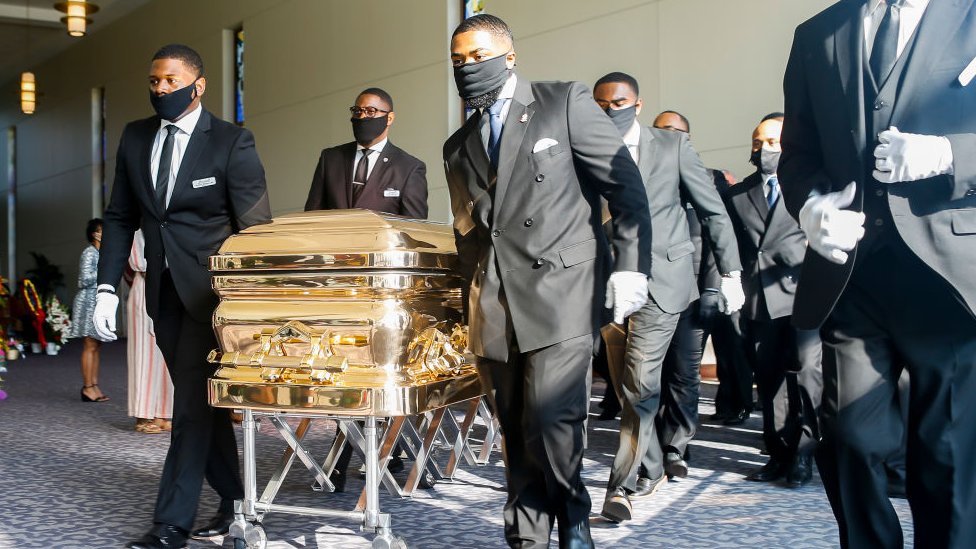George Floyd death: Thousands join London protest
- Published
Protesters chanted "black lives matter"
Thousands of people have joined a protest in London over the death of African-American George Floyd in US police custody nine days ago.
It comes as UK chief constables said they stand alongside all those "appalled and horrified" by his death.
In a joint statement, they said the right to lawful protest was a "key part of any democracy".
But they stressed coronavirus restrictions, including not gathering in groups of more than six, remained.
Protests began in the US after a video showed Mr Floyd, 46, being arrested on 25 May in Minneapolis and a white police officer continuing to kneel on his neck even after he pleaded that he could not breathe.
John Boyega gives emotional protest speech: "Black men, it starts with you"
The officer, Derek Chauvin, has been charged with second-degree murder, according to court documents.
Prime Minister Boris Johnson said on Wednesday that Mr Floyd's death had been "appalling" and "inexcusable", but was criticised for failing to comment on the killing before now.
SNP Westminster leader Ian Blackford said the UK government had "shuttered itself in the hope no-one would notice".
Meanwhile, Labour leader Sir Keir Starmer called on the PM to convey to US President Donald Trump the UK's "abhorrence about his response to the events".
Speaking later when asked about it at Wednesday's coronavirus briefing, Mr Johnson said: "My message to President Trump, to everybody in the United States from the UK is that… racism, racist violence has no place in our society."
He said people had the right to protest but "I would urge people to protest peacefully, and in accordance with the rules on social distancing".
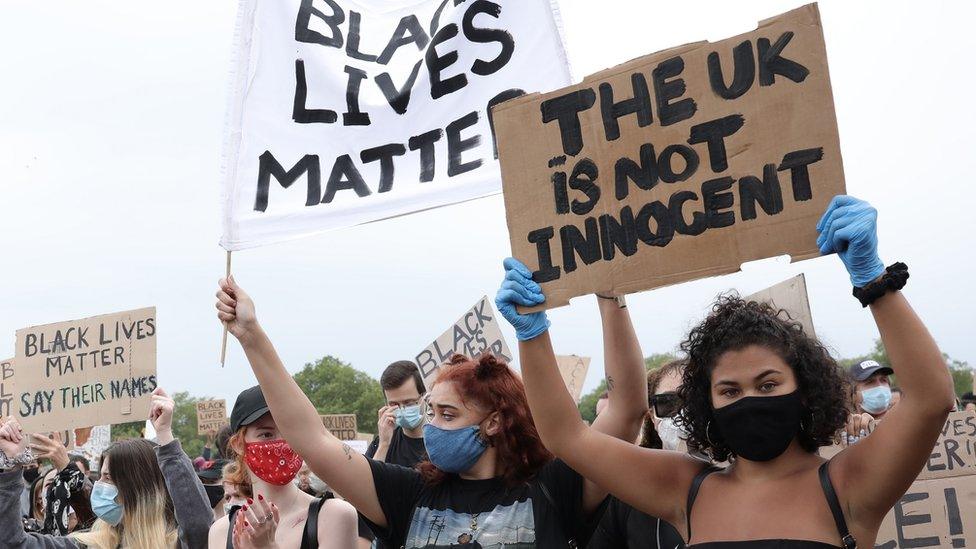
Protesters in Hyde Park chanted "black lives matter" and "we will not be silent"
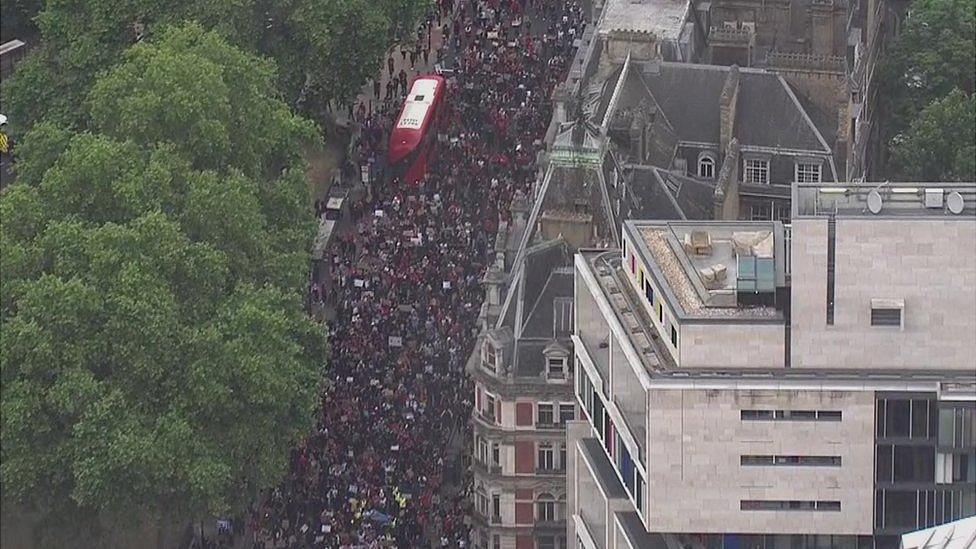
Thousands of people marched through Westminster in central London
Demonstrators gathered in London's Hyde Park for the protest organised by campaign group Black Lives Matter, before marching south through the city.
It followed days of protests in US cities including Washington DC, Los Angeles, Houston and Seattle, after the Floyd case reignited deep-seated anger over police killings of black Americans and racism.
Tens of thousands of demonstrators have taken to the streets there - not only to express their outrage at the treatment of Mr Floyd - but to condemn police brutality against black Americans more widely.
In the UK protesters marched to Victoria Station, where they hung a sign reading "Justice for Belly Mujinga" - referring to a railway worker who died with Covid-19. Initially it was thought this may have been because she was spat at by a man claiming to have coronavirus. However, police concluded that her death was not linked to the attack.
The protestors then continued towards Westminster, where they blocked the roads outside Parliament.
A number of videos shared on social media showed protesters and police clashing outside Downing Street.
Footage showed objects, including signs and a traffic cone, being thrown at police, while one protester was wrestled to the ground and restrained by officers.
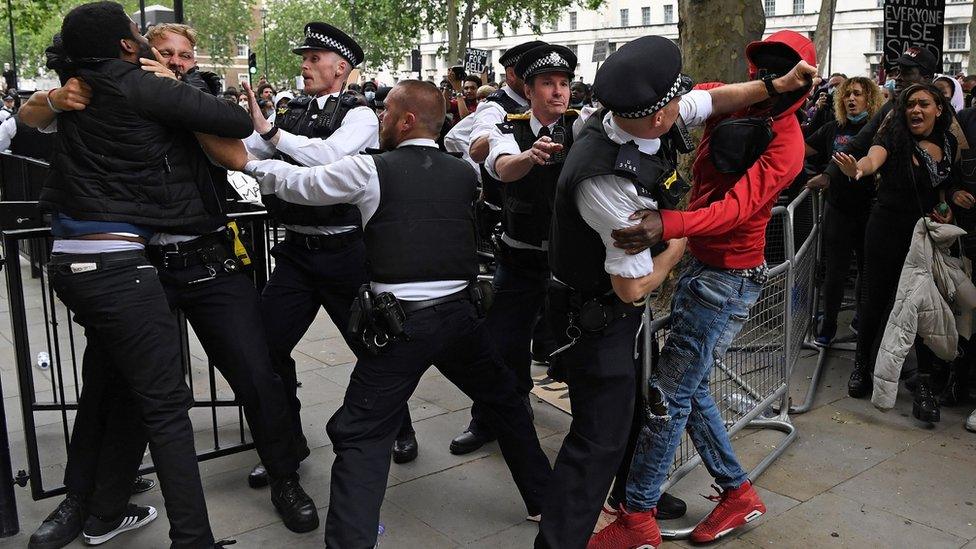
Some protesters clashed with police outside Downing Street

At the scene
By BBC reporter Chi Chi Izundu
There was anger in the crowd, as they sat, as they listened to speeches, as they took the knee.
This is yet another generation who have painted placards and taken to the streets to march against racism.
As they started to fill Hyde Park, organisers shouted at them to spread out their arms to maintain the two-metre social distancing rule. But so many gathered, it became impossible.
Friends and families together, different ages, different races.
At the start, organisers told me they were expecting about 1,000 people. But the protesters came out in their thousands.
They chanted "Black Lives Matter", they shouted "say his name". They said the "UK is not different" when it comes to racism. They want change.

Earlier, Star Wars actor John Boyega made an emotional speech to fellow protesters in which he said the crowds were "a physical representation of our support" for Mr Floyd along with two other black Americans who controversially died in the US, and Stephen Lawrence who was killed in a racist attack in London in 1993.
He said he was speaking from his heart and did not know whether he would still have a career after speaking out.
"Today is about innocent people who were halfway through their process - we don't know what George Floyd could have achieved, we don't know what Sandra Bland could have achieved, but today we're going to make sure that won't be an alien thought to our young ones," he said.
"I need you to understand how painful it is to be reminded every day that your race means nothing."
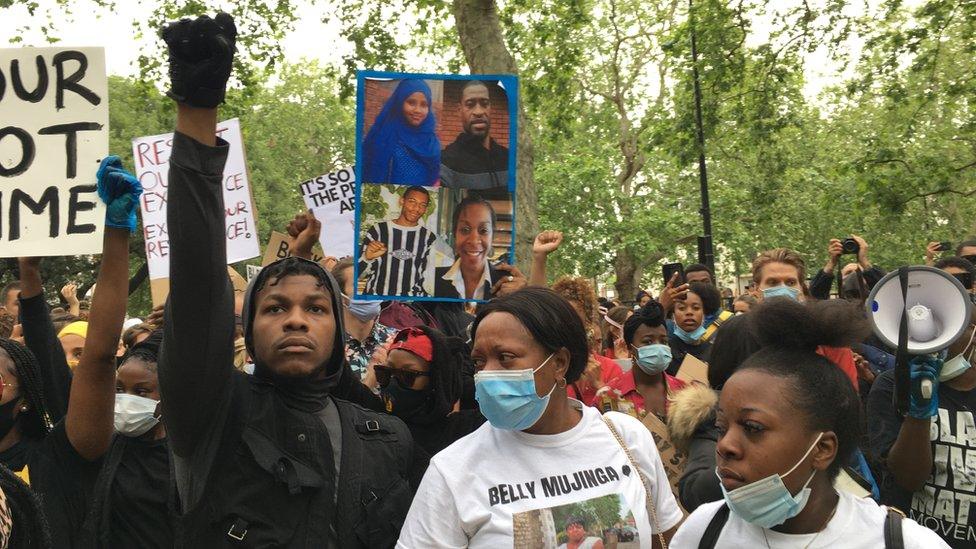
Actor John Boyega with family members of railway worker Belly Mujinga
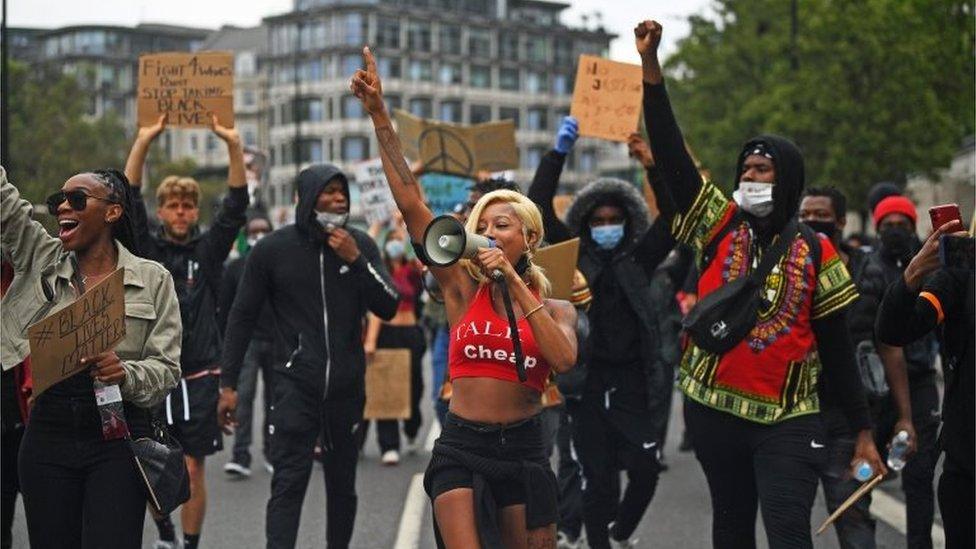
The crowds marched from Hyde Park towards Victoria station
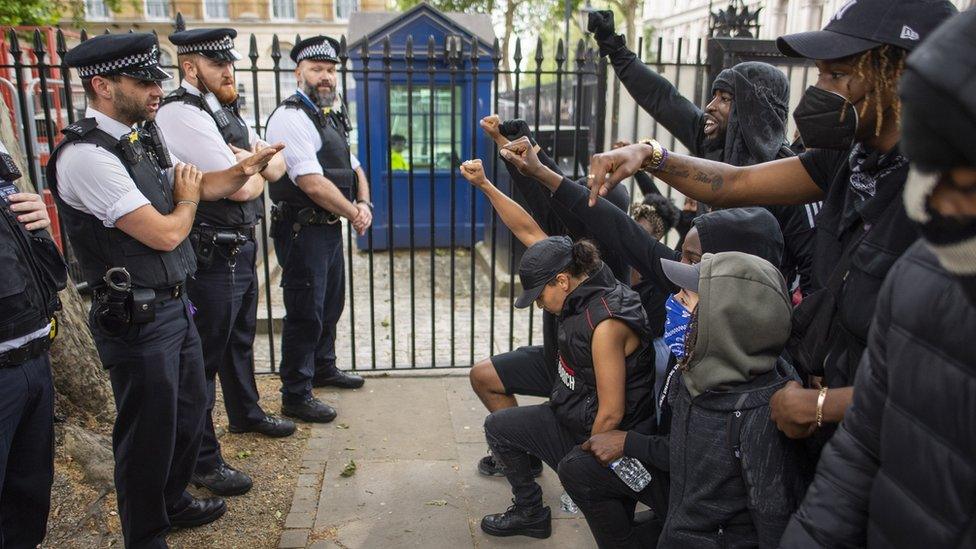
Protesters in Whitehall took the knee to show solidarity with George Floyd
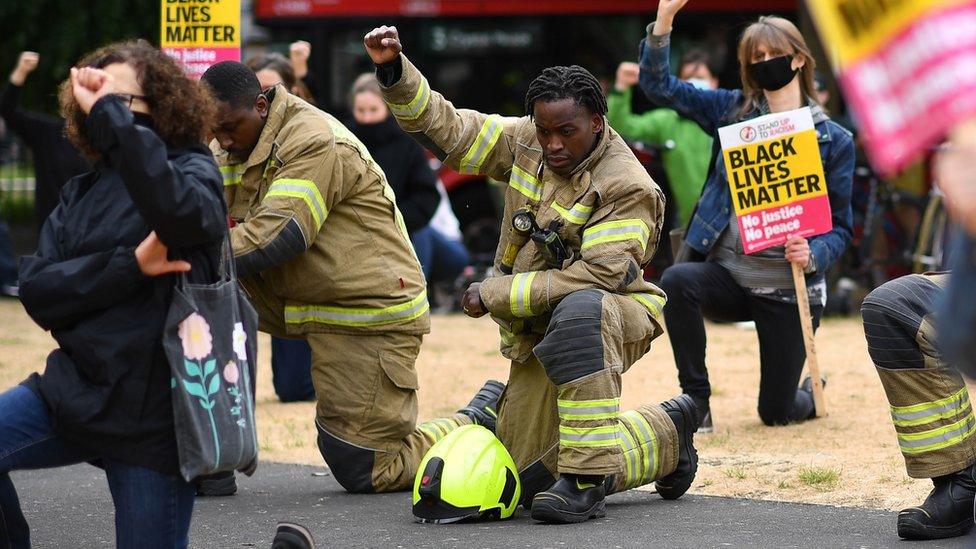
Firefighters in uniform knelt in Windrush Square, Brixton, in south London
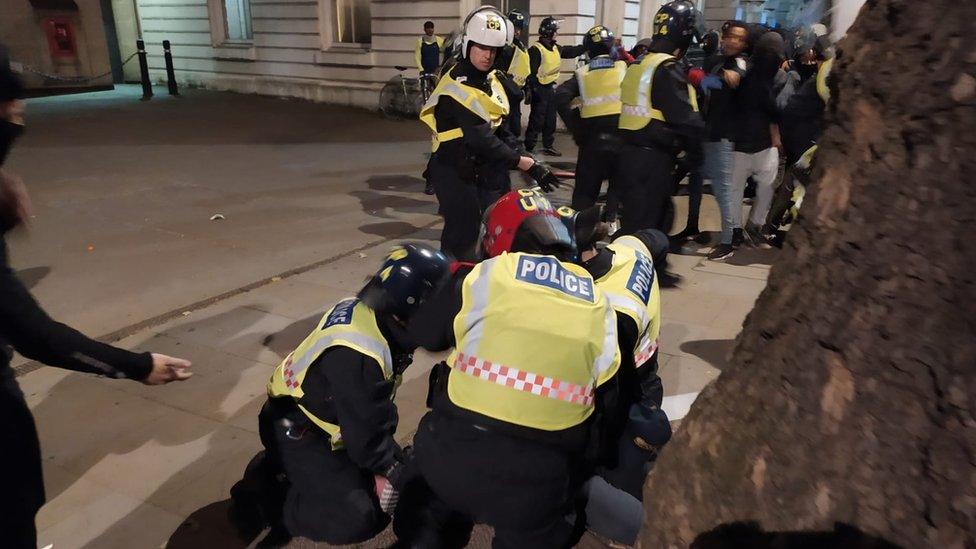
Police clashes with protestors on Downing St carried on into the evening
One activist attending the protest, Brogan Baptiste, told the BBC: "It's imperative that all of us, whether you're black, white, that you're involved in this because we need change and we need it now."
Filippa, a 20-year-old student who also joined the protest, said: "I know that I'm healthy. So this felt more important than to stay inside when I have the opportunity."
Protests also took place in other UK cities, including Belfast and Northampton.
'Appalled and horrified'
In their joint statement, the National Police Chiefs Council said: "We stand alongside all those across the globe who are appalled and horrified by the way George Floyd lost his life. Justice and accountability should follow."
They said officers in the UK were "trained to use force proportionately, lawfully and only when absolutely necessary".
However, they added: "We strive to continuously learn and improve. We will tackle bias, racism or discrimination wherever we find it."
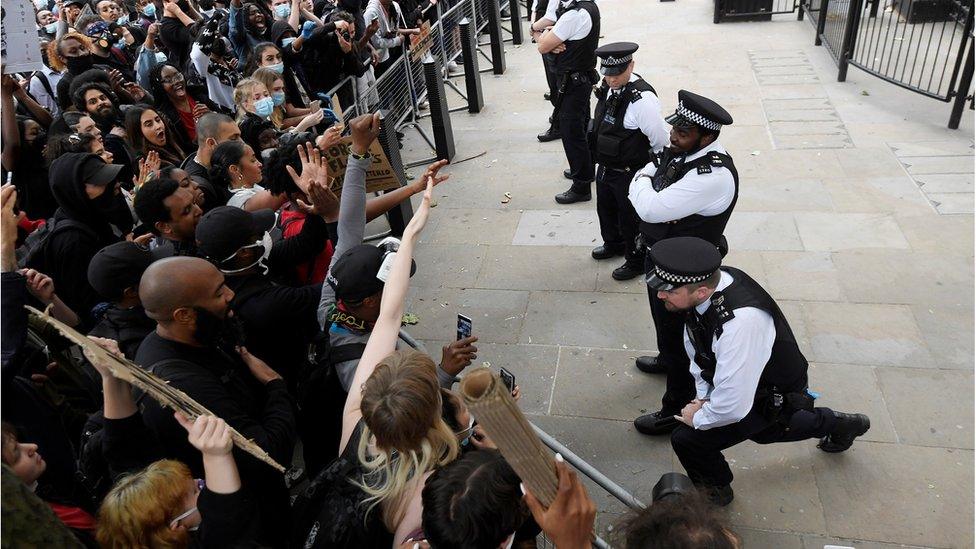
A police officer knelt in support outside Downing Street
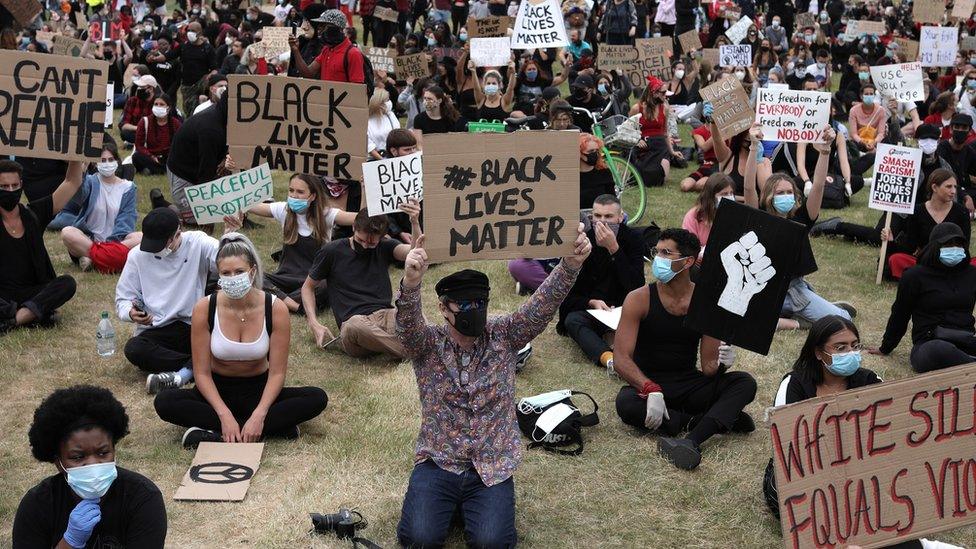
Thousands of protesters gathered in London's Hyde Park on Wednesday
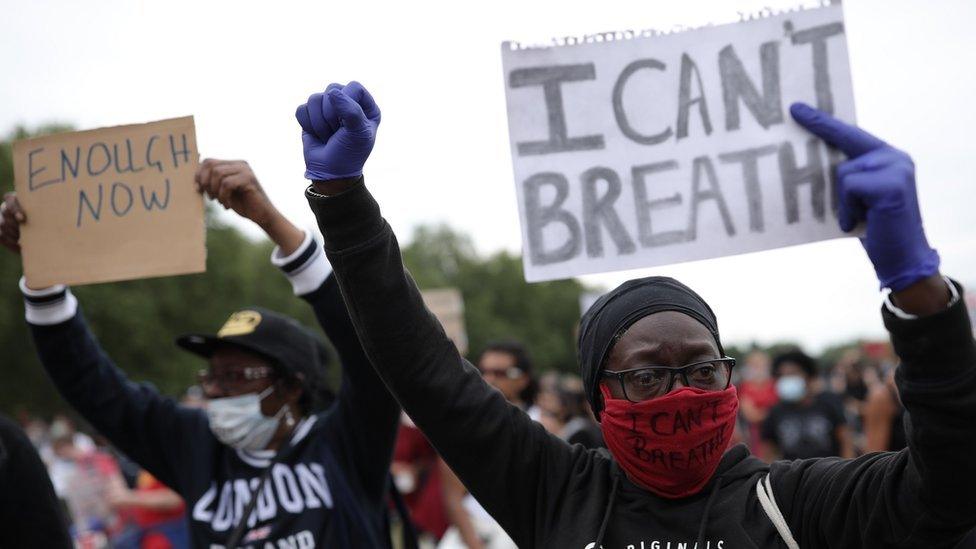
They said UK police "uphold and facilitate" the right to lawful protest and "we know people want to make their voices heard".
But amid the coronavirus pandemic they stressed restrictions on gatherings were still in place and urged people to "continue to work with officers at this challenging time."
This latest protest follows another on Sunday, which saw thousands gather in Trafalgar Square, in central London.
- Published31 May 2020
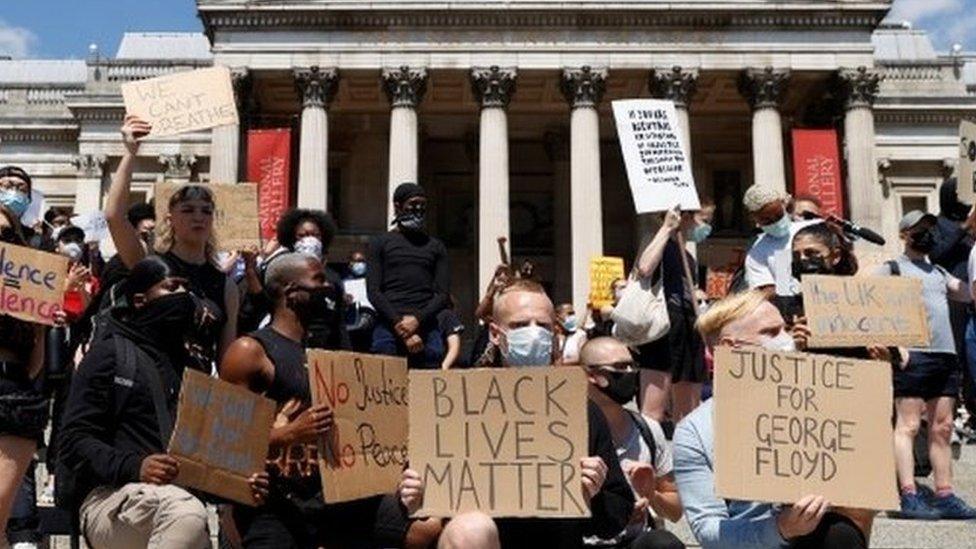
- Published2 June 2020
